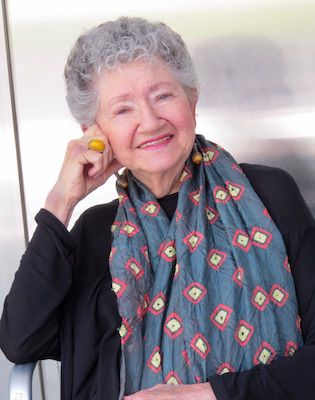
Florence Weinberger
Poetry
Florence Weinberger was born in New York City, raised in the Bronx, educated at Hunter College, California State University, Northridge, and UCLA, and has worked as a teacher, legal investigator, and consumer advocate. She is the author of four collections of poetry, The Invisible Telling Its Shape (Fithian Press, 1997), Breathing Like a Jew (Chicory Blue Press, 1997), Carnal Fragrance (Red Hen Press, 2004), Sacred Graffiti (Tebot Bach, 2010), and Ghost Tattoo, forthcoming from Tebot Bach. Four times nominated for a Pushcart Prize, her poetry has appeared in many literary magazines and anthologies. She also served as a judge for the PEN Center USA Literary Contest.
We’ve Taken Care of Everything
we’ve pre-paid the cost of digging the graves, the grave liners, the washing of the bodies,
the ushers, the guest book, you know what’s involved,
so we don’t put that burden on our kids
the way we had to take on our parents’ last choices
three months apart, first our mother, that was almost forty years ago,
we went together, even laughing at times in that giddy way of sisters,
in that self-conscious way when someone else’s grief is still hanging
in the chill air of the coffin room, no more than hours had passed,
we looked around, the soft lighting, the levitated caskets,
cheaper ones at the bottom, and at the top, the brass fittings and good mahogany,
some lids open to show white satin pillows, and we couldn’t help it,
we started laughing, I mean we were hysterical, cracking jokes, kind of
working off each other, so we decided we wouldn’t let our children go through that,
we went together, more sober this time, we picked out the same pine boxes,
bland as the wooden boxes cream cheese came in when we were kids,
leaving little to hinder the body’s passage back into the earth.
When I told Paul my sister and I have taken care of everything,
he asked me, what about your daughters,
don’t you think they should be given those hours,
making arrangements, the hours you and your sister spent together?
“ Most of my poems are narrative. Every so often the Muse invents a new dance, I go Picasso, or Rothko, my favorite artist. Then I can tell someone else’s story, but my own stories are so straight, the joy is finding the poetry in them, and then the wrap that tells me what my story means, and the opening, so others can find their own story. ”
